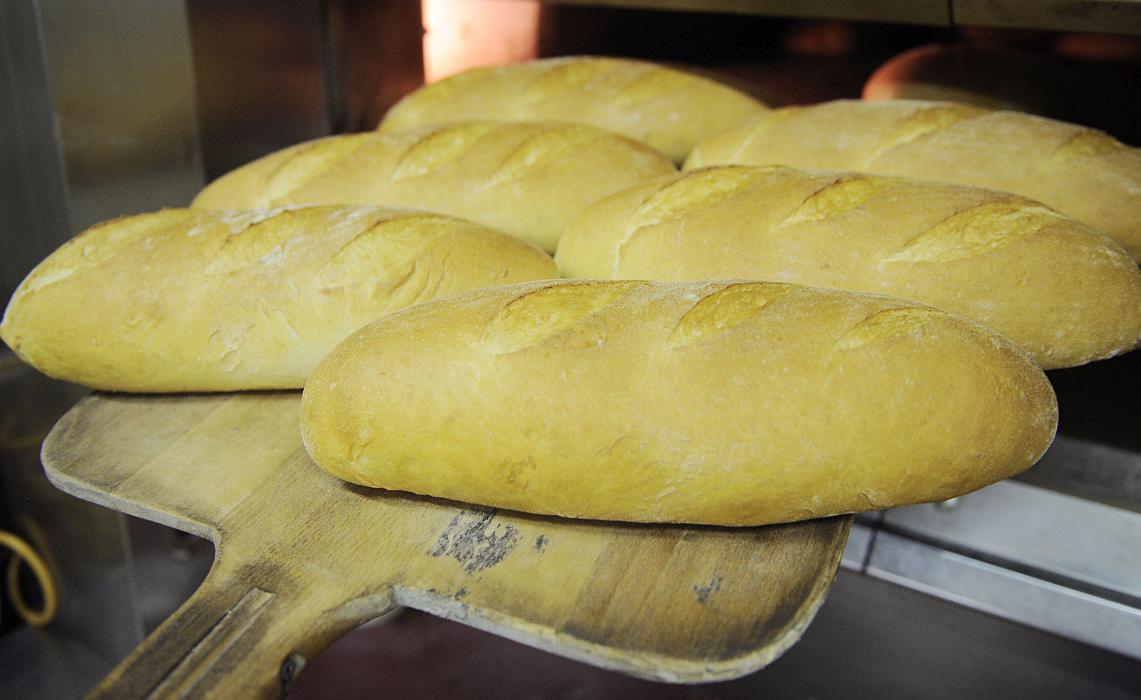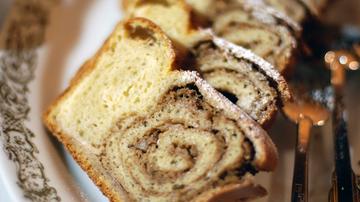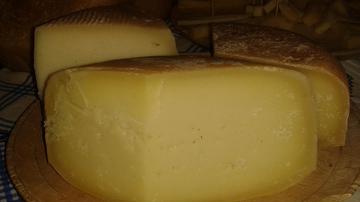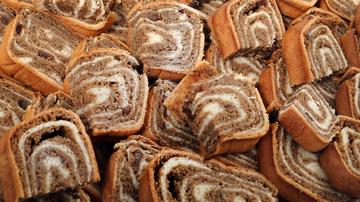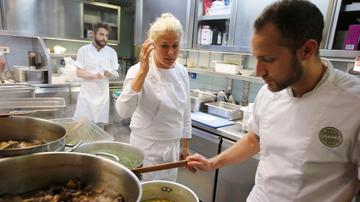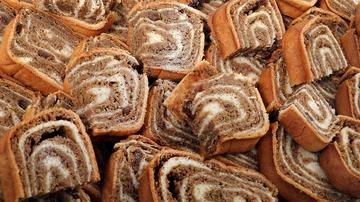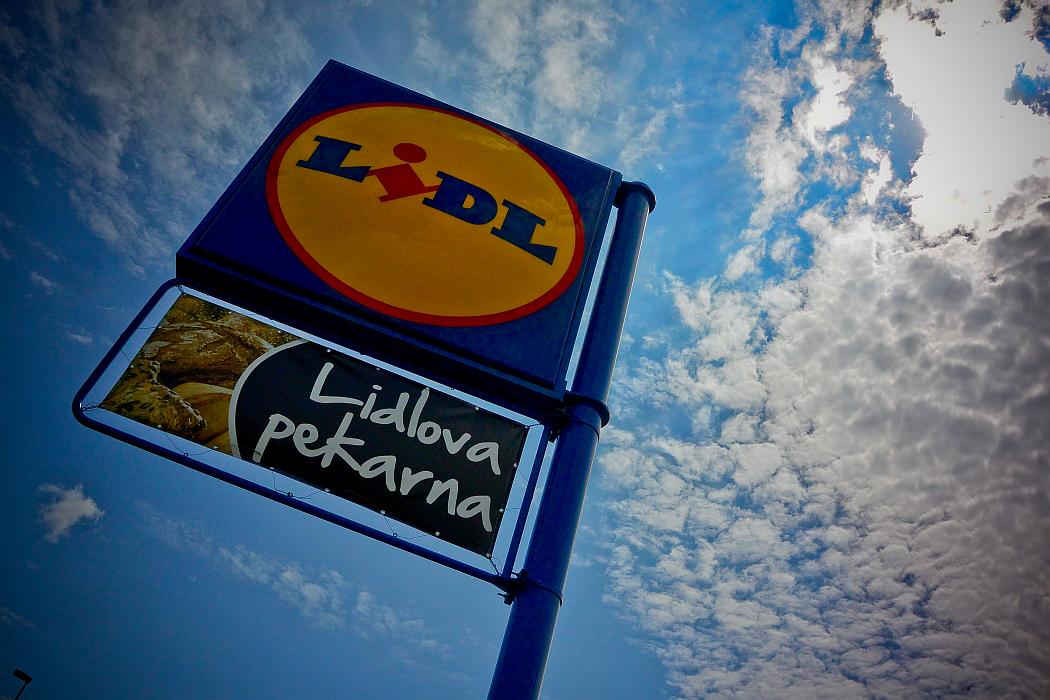
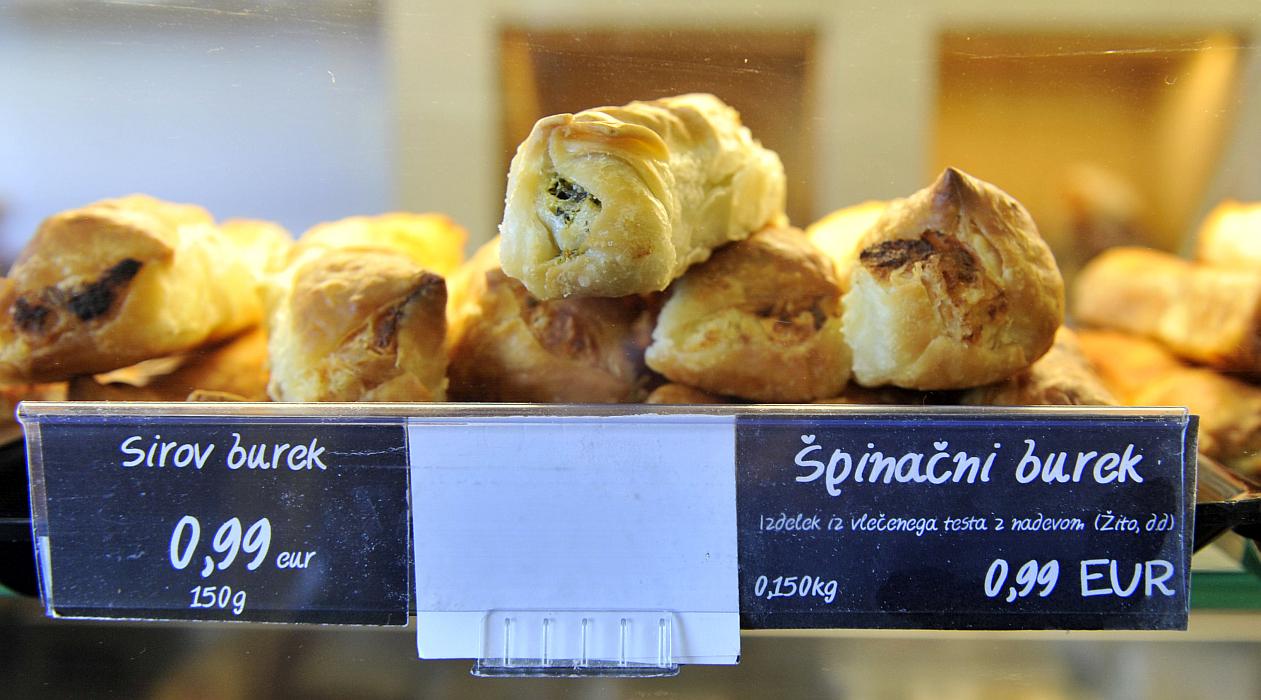
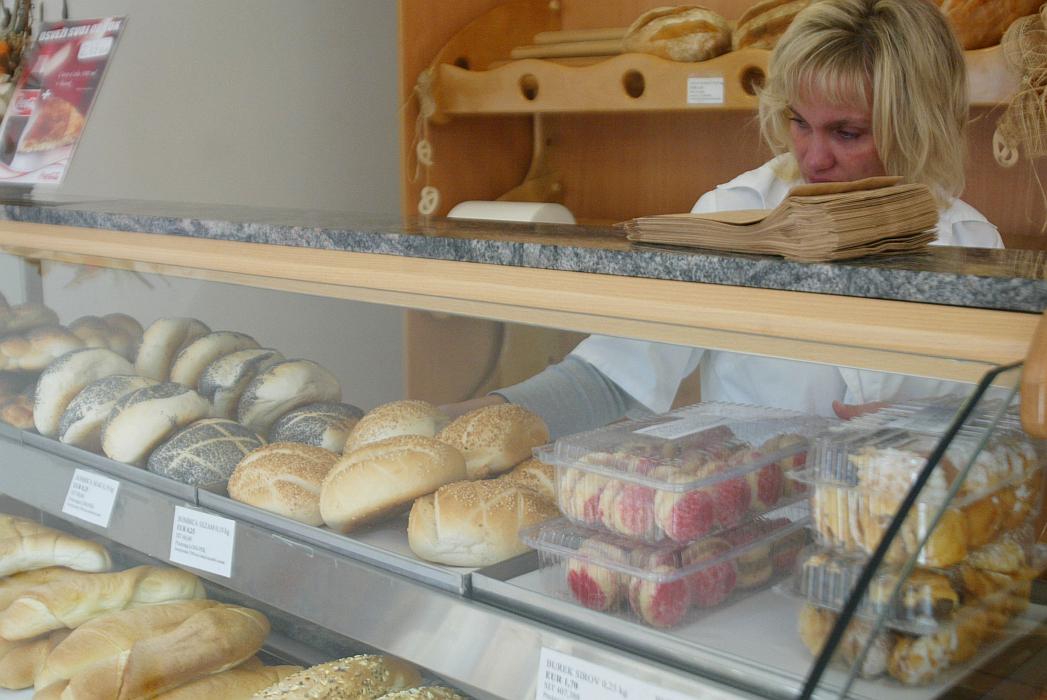
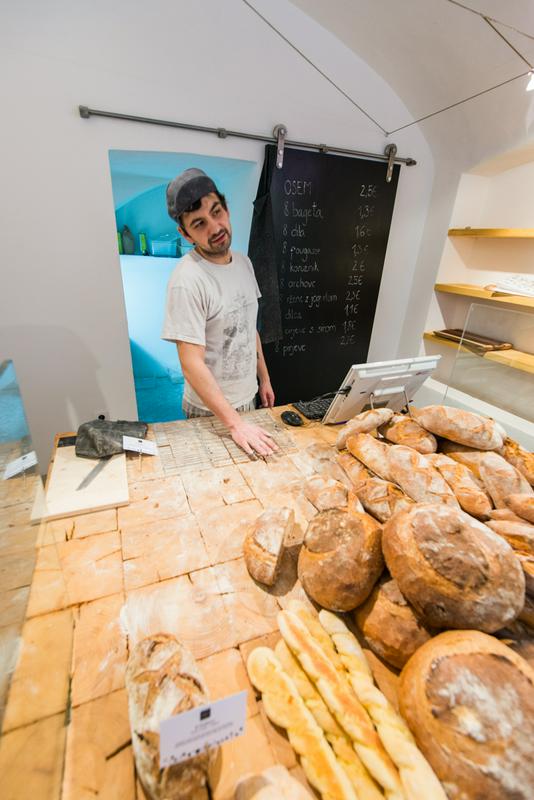
According to the data by the National Statistical Office an average Slovenian annually consumes approximately 50 kilograms of bread, which has always been an important part of the Slovenian identity. Especially our grandmothers worshiped bread, partly because they grew up during the war, and taught us that 'bread should not be thrown away', and that every plate should be 'cleaned with bread'.
The share of bread in our nutrition has been lately decreasing (10 years ago we ate 70 kilograms of bread per year, and 20 years ago even 90 kg), which can be contributed to the increased public awareness of healthy nutrition on the one hand ("evil" carbon hydrates are not considered the basis of every meal any more), and substitution with other, not necessarily healthier, raw materials on the other hand, causes more and more bread to remain unsold on the shelves. All these facts however are not reflected in the situation on the market regarding bakeries!
These have been growing like weeds. Besides groceries which all have a well-stocked department with bread and pastries (but with higher margins), a short stroll through the wider centre of the capital reveals an unbelievable frequency of all kinds of bakeries. It should be mentioned though that most of them offer more or less instant versions of inflated, cheap white bread, not even close to the tradition of our grandmothers, and franchises (the already mentioned Mlinar, and the German BackWerk), while only a few are those boutique ones, intended for more demanding consumers (either offering diverse, healthier products, or of the French boulangerie type with quality butter pastry).
Slovenians indeed eat a lot of bread, but judging from the number of bakeries one would imagine bread is the only thing we eat! And all the time! Is it really necessary to have a bakery so close to our own doorstep as if a loaf of white bread were as indispensable as insulin is for a diabetic? And at the same time it is extremely difficult to find an acceptable salad bar or more or less edible healthy meal in Ljubljana after 3 pm, not to mention a delicatessen with quality products. Accessibility and low price of baked goods, be it pastry or 'burek', and the lack of healthier alternatives is contributing to the fact established by the newest researches: Slovenian children are among the most overweight in Europe.
Misleading data
According to data from the Administration of the Republic of Slovenia for Food Safety, Veterinary Sector and Plant Protection (UVHVVR), 824 legal and natural persons had registered baking of bread – bakery in their register, 65 of those in Ljubljana. The number seems rather small considering the fact that on our stroll from the Prešeren square to the railway station we pass by approximately 15 bakeries! But as Matjaž Emeršič from UVHVVR explains for MMC, "the holders of the activity need to register only establishments which are actually carrying out the activity".
"The number of establishments which are baking bread (bakery) is definitely larger, as their main activity could be production of other foodstuff (pastry, pasta, biscuits, candies) or sale of other foodstuff. In 2013 an inspection of bakeries was performed, based on data from AJPES register, and it was established that a number of subjects had registered carrying out the activity from their own addresses, or in rented residential properties. Only after the visit by the inspector on the spot it was established that those holders of the food business do not have a production plant, but are performing individual works, or are working for another holder of the activity. In this way they are not employed by the production plant, but are acting as self-employed contractors or subcontractors, while the actual production is being done by others (mostly registered) enterprises," Emeršič explained.
Terrible hygienic conditions in small bakeries
UVHVVR does not keep records for the period before 2013, so they are not able to estimate the growth rate of bakeries in our country, but Emeršič said that the number of entries into the register has grown with 21 new entries following the previously mentioned action, the results of which have rather upset the Slovenian consumer – yet obviously not enough to influence their rush into bakeries.
At that time the inspectors have established that three quarters (!) of the owners of the small bakeries are breaking the law, and thus pose a serious threat to the health of consumers. Poor hygiene at premises, raw materials and products with expired date, a mice nest, bread on the floor… These are only a few examples of violations noticed by the inspectors. They perform the inspection of bakery plants once a year, or every two or three years, depending on the type of products.
Cheap, cheap, cheap
These findings should have driven buyers away from small bakeries – but they didn't. The reason remains a mystery, but we should probably consider the price, accessibility (most of these bakeries open at 6 am, and close late in the night) and, not the least important, the fact that an average consumer is not too particular, to say the least. That would explain especially the multitude of Albanian bakeries. Without any doubt the demand for black, whole wheat, spelt and other similar types of bread has increased, but those still can't compete with good old 'working man's' white loaf of bread – especially when the difference in price is considered. When it costs half as much, the quality obviously is not that important.
Boutique bakeries which are doing their best to upgrade their baking, to use original recipes, better raw material and longer-lasting procedures have hardly any chance against the instant bakeries with mass production, identical (simple) procedure, and previously prepared cheaper products, usually half-baked in plants and finished in shops, delivered by a foreign supplier delivering to most of such bakeries. Regardless of rather misleading names, e.g. "Stara pekarna" (The Old Bakery) or "Pekarna 1931" (Bakery 1931).
Some of the bakeries, like Osem (Eight) bakery, managed to gain a basis of faithful customers who still persist, but the question of profitability remains when we consider the price of rents in the old part Ljubljana, and the limited quantity of the baked goods. They are fighting against generic bakeries requiring a small investment, but bringing a large profit, which is unfair competition. Not to mention the constantly present (Albanian) "baking mafia" ousting its competition, and against which the uprising has already started in the neighbouring Croatia.
Kaja Sajovic
Translated by G. K.




















































